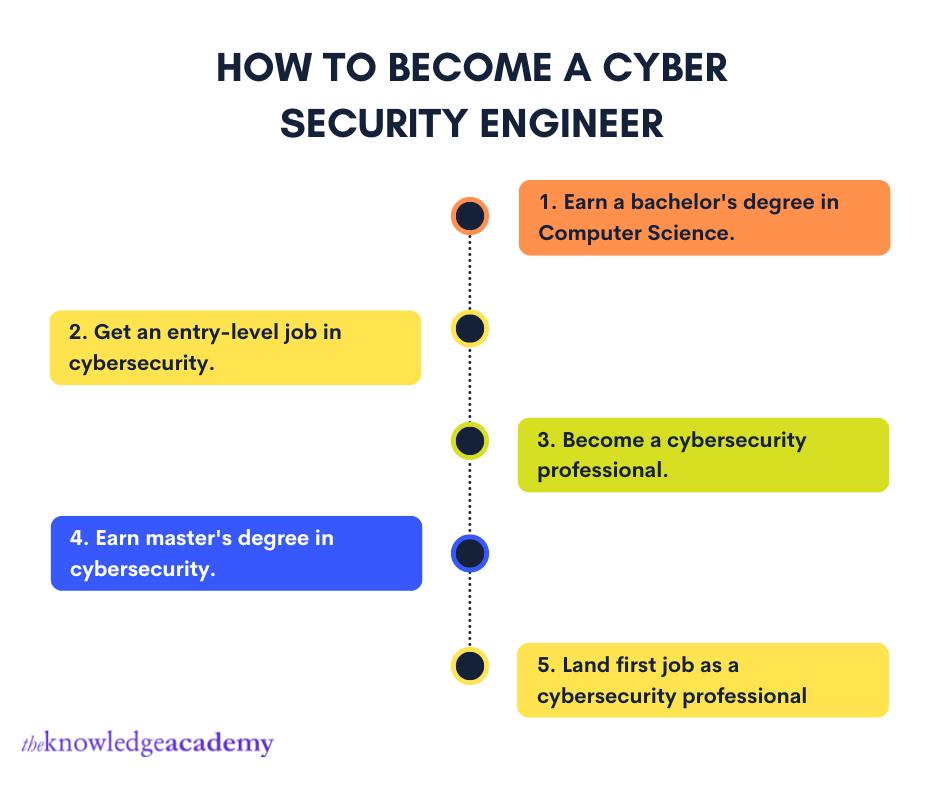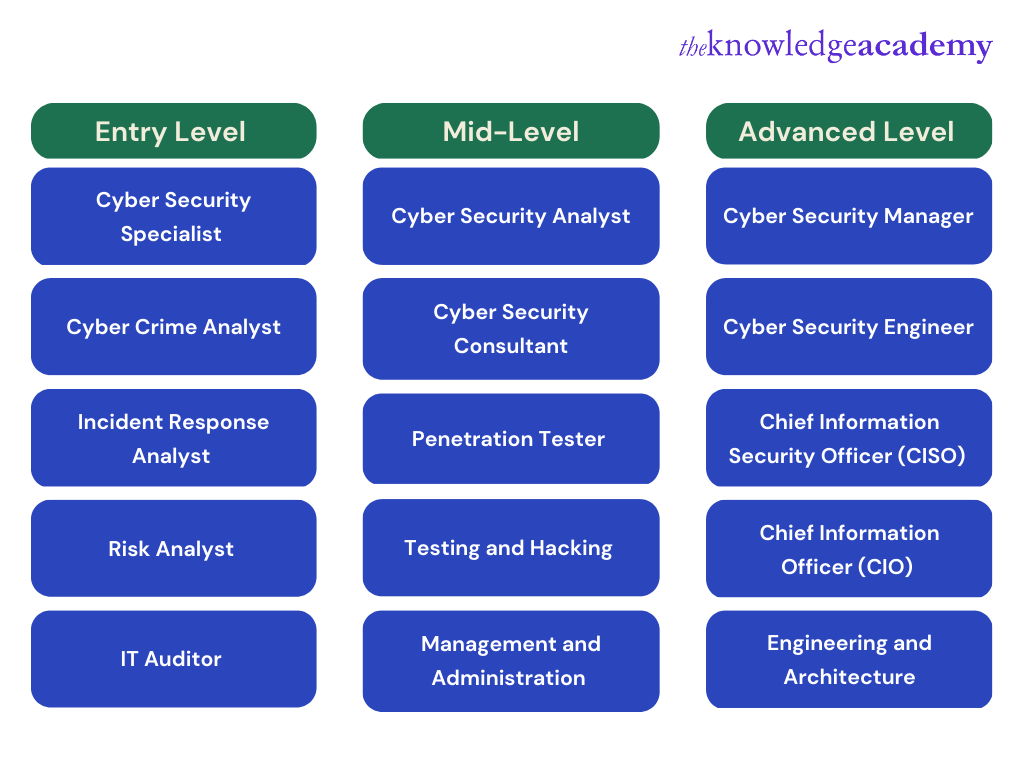We may not have the course you’re looking for. If you enquire or give us a call on +47 80010068 and speak to our training experts, we may still be able to help with your training requirements.
Training Outcomes Within Your Budget!
We ensure quality, budget-alignment, and timely delivery by our expert instructors.

Cyber Security is the application of different technologies, processes, controls, and measures that protect systems, networks, programs, and data from cyber-attacks. It is the practice of protecting computers, servers, mobiles, and other electronic devices from malicious attacks by hackers and cybercriminals. It is also known as Information Technology (IT) Security or Electronic Information Security. With the advancement of the internet, online threats to businesses have increased substantially. Today, cyber security attacks are one of the companies' biggest causes of concern. The threat of Ransomware attacks, data breaches, and others has increased considerably.
According to a report from Norton, more than half of the people worldwide have experienced cybercrime at least once. This figure shows the extent to which the number of online crime cases has increased and affects people's lives. As cyber threats grow, the requirement and demand for professionals to manage and reduce them have also increased.
This blog provides an overview of the profession and explains the process of becoming a Cyber Security Engineer.
Table of Contents
1) Who is a Cyber Security Engineer?
2) Growing demand for Cyber Security Professionals
3) How to become a Cyber Security Engineer
4) Skills and qualifications of a Cybersecurity Engineer
5) Roles and responsibilities of a Cybersecurity Engineer
6) Payscale of a Cyber Security Engineer
7) Cyber Security career path
8) Conclusion
Want to become a Solutions Architect? Join the Microsoft Cybersecurity Architect SC100 – today!
Who is a Cyber Security Engineer?

A Cyber Security Engineer is a professional who protects and safeguards computers, networks, and data from malware. Such a person uses different tools, techniques, and methods to secure the network, computers, and data from cybercriminals. They are tasked with building and maintaining multi-layer security systems that connect different components, such as computers and mobiles, to networks and data—this way, a highly effective security system can be created. Today, several business organisations have a well-built IT infrastructure. However, these systems need to be maintained, which is the duty of the Cybersecurity Engineer.
This role of a Cybersecurity Engineer is considered among the more advanced roles in IT Security. The primary responsibilities of such individuals consist of designing, implementing, monitoring, and upgrading security measures. As part of the IT Security team, these engineers must respond to security breaches and threats, test and identify system vulnerabilities and prepare reports for the managers. This way, they can make effective decisions.
The duties and tasks carried out by a Cybersecurity Engineer can help the company secure its data and thereby provide better services to the customers in the long run. Further, having a secured database also helps enhance the firm's overall image in the market. Today, the role of a Cybersecurity Engineer is of paramount importance because such individuals can play a crucial role in forming the company's future.
Expand your understanding of cyber threats with the Cyber Security Awareness course.
Growing demand for Cyber Security Professionals
In recent years, mainly due to the COVID-19 pandemic, there has been a significant shortage of Cybersecurity Engineers as online security continues to become a prominent topic. To meet this demand, the total number of IT Security candidates will have to increase by 145%.
With a growing focus on online security, a career as a Cybersecurity Engineer provides job security to professionals, unlike other job fields. This is in addition to the attractive salary packages offered by companies and a high growth rate. This shows the growing demand for Cybersecurity Engineers. Thus, making a career in this field can be lucrative for individuals.
Learn the skills of detecting and investing in Cybercrime with the Cyber Security Risk Management course.
How to become a Cyber Security Engineer

The following step-by-step guide shows how one can become a Cybersecurity Engineer.
a) Earn a Bachelor’s degree in Computer Science with a focus on Cybersecurity and score high marks
b) Get an entry-level job in the Cybersecurity field
c) Get certified in Cyber Security Engineering
d) Earn a Master’s degree in Cybersecurity
e) Get a job as a Cybersecurity Engineer
Skills and qualifications of a Cybersecurity Engineer
There is enormous pressure on Cybersecurity Engineers. Therefore, they need to be highly skilled and qualified for the job. Following are the skills and qualifications necessary to become a Cybersecurity Engineer.

Qualifications of a Cyber Security Engineer
The most basic and important qualification one needs to become a Cybersecurity Engineer is to have a degree in a computer-related subject such as Computer Science, Business Information Technology, and others. This way, the employer will know that the candidate has some experience and knowledge in the technical aspects of a computer and the cyber world. A University level degree will further help in getting an entry-level job in Cyber Security.
Skills of a Cyber Security Engineer
Cybersecurity Engineer skills are in great demand currently. Following are some skills that such individuals need to possess to enter the profession.
Basic Knowledge of Ethical Hacking: A Cybersecurity Engineer should have a basic command over Ethical Hacking. The primary purpose of this form of hacking is not to take undue advantage of weaknesses and loopholes in the network but to identify and address them beforehand. Sometimes such professionals are required to ethically hack into a third-party network to protect their systems and networks. As a result, these engineers should know about Ethical Hacking to create better strategies and plans to protect the network.
Problem Solving: Dealing with cyber-attacks can be challenging at times. Due to this reason, Cybersecurity Engineers should possess solid problem-solving skills. This way, the Engineer can avoid panicking and manage the situation effectively. Such individuals should be able to think quickly and find a solution to the problem as soon as possible so that the threat can be minimised. These professionals have to act fast, and Problem-Solving skills can be helpful here.
Understanding of Network Architecture: Cybersecurity Engineers sometimes have to create Cyber Security plans which consist of information regarding security plans and company policies. To make such documents, the Engineers need to have at least a basic understanding of Network Architecture. This way, they can understand how the different systems are connected. Such knowledge can help engineers build better, safer, and more robust networks.
Programming Knowledge: Cybersecurity Engineers do not have to be proficient in Programming and Coding. However, these Engineers need to possess at least basic knowledge of programming. Cybersecurity Engineers have to identify malicious code or sometimes may have to write some lines of code to protect the network. Such individuals should know at least one programming language.
Ability to Analyse Risks: Cyber Security Engineers should be able to not only identify risks but also analyse them thoroughly. This is an essential skill for the Engineer because the earlier they can identify and analyse the risks, the better they can prepare and mitigate the threats while minimising risks for the company, emphasising the importance of Cyber Security Essentials.
Become familiar with TCP/IP and Cryptography concepts with CCNA Cybersecurity Operation Training.
Roles and responsibilities of a Cybersecurity Engineer

Cybersecurity Engineer positions entail carrying out such duties and tasks on which the company's future depends. It is one of the most critical positions for a company, regardless of the market of its operations. These professionals lay the foundation and guide the business to manage its systems, processes, and networks online, including conducting regular Cyber Security Audits. The following points highlight some key roles and responsibilities the professional Cyber Security Engineer has to carry out.
a) Identify and analyse security issues in the company
b) Develop and set up Firewalls and systems that can identify intrusions and configure them to the needs of the organisation
c) Carry out risk assessments and analyse risks in the company's IT infrastructure and systems
d) Perform Code Audits and security assessments
e) Conduct research to pro-actively identify attack vectors against the company
f) Assess the systems and enhance their scalability, efficiency, and stability
g) Undertake offensive security exercises
h) Write lines of code in different coding languages
I) Carry out code reviews
j) Identify the security requirements for products and systems
k) Collaborate with other teams
l) Promote security practices in the organisation
Learn about CompTIA technologies by joining CompTIA Cybersecurity Analyst CySA+ Certification now.
Payscale of a Cyber Security Engineer
The profession of a Cybersecurity Engineer is a very sought-after role in the IT industry. It is also among some of the highest-paying jobs in the world. In the UK, the average annual salary is £50,974. However, such a professional's salary depends on several factors such as qualifications, working experience, chosen specialisation, selected organisation, and many more. On average, a person starting a career as a Cyber Security Analyst can earn a salary of £30,000. At the same time, a high-level professional with years of experience can make upwards of £100,000 annually.
Cyber Security career path

The Cybersecurity profession offers several positions to individuals, providing a role regardless of their overall experience in the industry. A person can enter this profession as a Cybersecurity Specialist or a Cyber Crime Analyst and then move to positions such as Cybersecurity Analyst, Cybersecurity Consultant, or Penetration Tester. Then they can move to advanced-level positions such as Cybersecurity Engineer, Cybersecurity Manager, and many more.
Want to become a professional in Cyber Security? Join Certified Cyber Security Professional (CSS-PRO) - today!
|
Entry Level |
Mid-Level |
Advanced Level |
|
Cyber Security Specialist |
Cyber Security Analyst |
Cyber Security Manager |
|
Cyber Crime Analyst |
Cyber Security Consultant |
Cuber Security Engineer |
|
Incident Response Analyst |
Penetration Tester |
Chief Information Security Officer (CISO) |
|
Risk Analyst |
Testing and Hacking |
Chief Information Officer (CIO) |
|
IT Auditor |
Management and Administration |
Engineering and Architecture |
Conclusion
The field of Cybersecurity is beautiful and lucrative. The demand for such professionals is increasing at a very rapid pace. The need for such individuals is multiplying. Professionals in this role must analyse the company’s systems and networks to identify threats. Such information can be vital for the individual in developing an effective security policy for the company and securing its data. This blog discussed the skills and qualifications required to become a Cyber Security Engineer. We hope this blog motivates you to pursue the profession and achieve your dreams.
Frequently Asked Questions
Upcoming IT Security & Data Protection Resources Batches & Dates
Date
 Certified Cyber Security Professional (CCS-PRO)
Certified Cyber Security Professional (CCS-PRO)
Fri 6th Dec 2024
Fri 21st Mar 2025
Fri 23rd May 2025
Fri 22nd Aug 2025
Fri 5th Dec 2025







 Top Rated Course
Top Rated Course



 If you wish to make any changes to your course, please
If you wish to make any changes to your course, please


